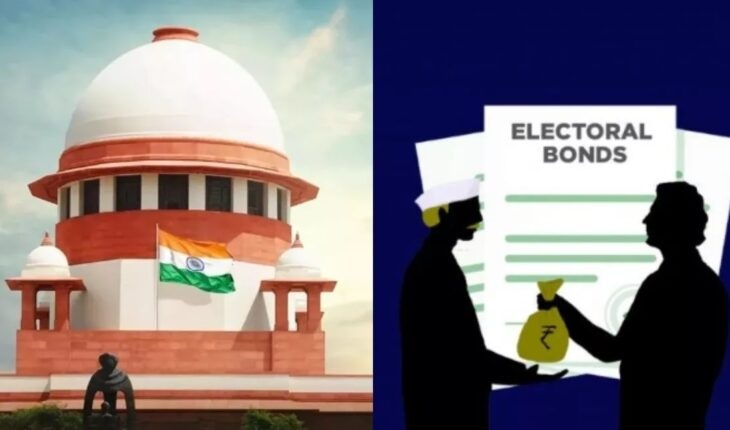
THE Supreme Court of India had struck down the electoral bonds scheme as unconstitutional and manifestly arbitrary. That the Modi government would find this verdict unpalatable is not surprising, given the fact that the electoral bonds scheme was devised by it to legitimise political corruption.
The government has moved through the State Bank of India (SBI) to undermine the implementation of the judgment. The Supreme Court had directed that all the details of electoral bonds purchased since April 2019 must be made public, including the date of purchase, the name of the buyer and the denomination of the bond. For this, the State Bank of India, which was the sole agency for the transaction of electoral bonds, was asked to submit all the relevant details of the bonds to the Election Commission of India by March 6 and thereupon the Election Commission was to make public all the details by March 13.
The SBI has approached the Supreme Court on March 4 asking for more time to submit the details of electoral bond transactions. It has asked for an extension of the time till June 30. This would mean that instead of 21 days given to the SBI by the Supreme Court, the bank now wants another 116 more days to complete the work. In effect, the public will be informed about the details of the electoral bonds only after the Lok Sabha elections are over and a new government is formed.
The request of the SBI has been met with widespread criticism and ridicule. All banking operations of the SBI are digitalised. According to a RTI reply given by the SBI, Rs 60,43,005 was spent on IT system’s development for the floating of electoral bonds out of a total cost of Rs 1,50,15,338. If over Rs 60 lakh was spent for developing an IT system for the electoral bonds scheme, how is it that the SBI now claims that certain records of the electoral bonds have been kept manually and in sealed covers at the Mumbai headquarters of the SBI?
When a bond is purchased at a designated branch of the SBI by any person or entity, that would be recorded digitally. When the bearer bond is deposited at any of the other designated SBI branches, for that too there would be a digital record. As early as in 2019, Nitin Sethi writing in the HuffPost India had shown how a bond issued by the SBI carries a secret alphanumeric code, which can be used to keep track of who bought a bond and to which party it has been donated to.
Even if some of the records have been kept manually, there is no reason whatsoever to believe that accounting for 22,217 electoral bonds cannot be done in a space of 21 days. All that the SBI needed to do was to put additional personnel for the job.
It is, therefore, crystal clear that the SBI has come out with a lame excuse and spurious reasons which amount to insulting the intelligence of the Supreme Court.
The ulterior intent is also evident from the fact that the SBI filed its petition in the court just a day before March 6, so that missing the deadline becomes a fait accompli.
The Modi government and the ruling BJP have every reason to try and scuttle the publication of the details of the electoral bonds so far issued and redeemed. As the court itself pointed out, the scheme was so devised as to facilitate a quid pro quo. Once the break-up of Rs 6,565 crore worth of bonds received by the BJP is known, then it can be correlated to which company or individual capitalist had donated the bond and what policy or favour was given as a quid pro quo.
There is another angle which will be exposed by the publishing of the details of the electoral bonds received by the BJP. A study conducted recently by the Newslaundry and The News Minute of corporate donations received by the BJP (not through electoral bonds) shows that there are at least 30 companies, which donated a total of nearly Rs 335 crore to the BJP in the five previous financial years, had faced action by central agencies during the same period. Of these, 23 companies had never donated to the BJP between 2014 and the year of the action taken by a central agency like the ED or IT department; four of the companies donated a total of Rs 9.05 crore within four months of the central agency visit; six firms that were already donating to the BJP handed over bigger amounts on the months following the searches.
This is damming proof of how central agencies are used to extort funds for the BJP. Once the electoral bond details are published concerning the BJP, not only the quid pro quo of bribery and corruption can be established, but also how funds were extorted through blackmail by the coercive actions of the central agencies.
The Supreme Court could not take up the SBI petition for consideration till March 6. The court should not allow the subterfuge to pass. Whenever it takes up the SBI request, it should give it short shrift and set an immediate deadline for it to comply.
(March 6, 2024)


